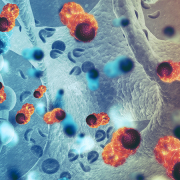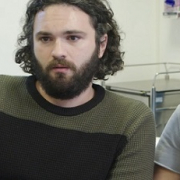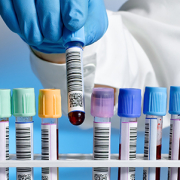New Lynch syndrome registry ‘game-changing’ for patients
England’s latest Lynch syndrome patient database may transform the disease’s detection and monitoring, becoming a blueprint for other genomic diseases
In a UK first, clinical scientists have reportedly created a new registry to bring together the information from various Lynch syndrome databases into one place. Called the English National Lynch Syndrome Registry (ENLSR), it will help in the management of, and early screening for, some Lynch syndrome-associated high-risk cancers. It may also provide NHS patients in England early access to novel treatments.
This new patient registry could be the vanguard of similar projects. “[ENLSR] is the first registry anywhere in the UK to collect data on all patients identified across the country with a specific genetic condition,” said The Royal Marsden NHS Foundation Trust consultant Professor Clare Turnbull. “We are confident that this will serve as a blueprint for establishing future registries of other conditions,” she added.
- GeNotes knowledge hub: Lynch syndrome
- Patient film: Tom’s story: genomic testing and treatment for Lynch syndrome
The importance of patient registries
Patient registries are an important way to support healthcare systems those who use them. A common reason to start a register is to help organise preventative care. For example, anyone in England with a Lynch syndrome diagnosis can opt in to the Bowel Cancer Screening Programme, an initiative that aims to identify bowel cancer in its more treatable early stages. The existence of a patient register makes the process more cost effective too.
National registries are particularly powerful. A patient, now part of a larger group of people with similar conditions, may get better support, earlier access to life changing drugs and faster updates on how to manage the condition. Within national healthcare systems, national registries can provide researchers with powerful data to further disease understanding and treatment, support precision medicine efforts against a condition, and much more.
“Large databases such as [ENLSR] are of immense value,” noted The Institute of Cancer Research clinical research fellow Dr Lucy Loong. “By centralising patients’ genetic data, together with detailed information about the cancer diagnosis and treatments that these patients have received, researchers will gain crucial insights into Lynch syndrome.”
Why Lynch syndrome?
The ENLSR holds over 9,000 patient records, but what is it about Lynch syndrome that warrants a national database? It ticked a number of boxes, from researchers knowing a lot about it to there being a strong public health argument to focus on.
Lynch syndrome is a fairly well-understood condition with a high penetrance. This makes cascade testing, which is where the patient’s family members are considered for testing, very likely to pick up new cases before Lynch syndrome-associated cancer develops – which can include colorectal and endometrial cancers. When new cases are found, there are ways in which risk can be reduced for those affected that are relatively cheap, available and simple. Advice on this includes a NICE recommendation to take aspirin and attending colonoscopies.
- GeNotes In the Clinic: Presentation: Patient with a genetic diagnosis of Lynch syndrome
Perhaps the strongest public health argument is that Lynch syndrome is not rare, but is often hidden. An NHS report estimated that 1 in 400 people in England have the condition, but only about 5% of people know they have it. “We have to know who has the condition so that we can provide them with life-saving interventions”, said the National Lynch Syndrome Transformation Project co-lead Professor Kevin Monahan. “That’s why the National Lynch Registry is such a huge step forward, it’s game-changing for people with Lynch syndrome and their families.”
Take a look at how genomics is impacting medicine with our genomics in healthcare collections where you can learn more about Lynch syndrome and hear from Professor Monahan on how genomics is helping gastroenterologists in the clinic.









